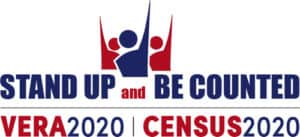Pandemic Pivots
April 29th, 2020 | News
Adults enrolled in adult education programs are among the most vulnerable and hardest hit by the COVID-19 pandemic: low-wage workers in the front line of the service sector, preparing and delivering our take-out food, stocking our warehouses and grocery stores, taking care of the elderly and ill. Much like children and youth now needing to engage in distance learning, their education was also interrupted and moved online. Many are attending to their children’s education at home without adequate skills, devices, or resources for meeting basic needs for food and shelter.
Like so many of our nonprofit counterparts, World Education has made a rapid pivot to safeguard essential services, gear its programs to mitigate disruptions, and meet needs raised by the pandemic. Working from our strengths, our efforts in the U.S. have focused, in part, on ensuring that adult education providers know how to access technology tools and best practices so that adult learners can continue their learning. As adult education programs across the country had to end their regular classes suddenly, they scrambled to convert their classes to virtual formats, typically on shoestring budgets. The EdTech Center @ World Education stepped up its coaching and professional development on distance learning tools, resources, and best practices. The new site created for this effort, Tips for Distance Learning has seen 18,000 visits since its launch in mid-March.
We are providing free coaching and technical assistance for adult educators and advisors through weekly Distance Education Strategy Sessions. Our National College Transition Network featured guidance on Tech Tools and Tips for Coaches and Navigators. The SABES Program Development Support Center in Massachusetts, which World Education leads, also has facilitated online trainings on distance learning. Across the board, our virtual trainings are drawing record numbers of participants.
From these efforts, we know that many adult educators have gone out of their way to reach their students by phone, social media, email, text, and internet messaging such as on Facebook or WhatsApp, and even snail mail – recognizing some adults do not have devices or internet access.
Sadly, the digital fault lines that COVID-19 has exposed reflect more than gaps in technology access. An estimated 32 million Americans struggle to use a computer, and half of all Americans say they are not confident using technology to learn. For these individuals, the shift to a fully online job market or online-only education and training threatens to exacerbate the gaps that already exist between economic haves and have-nots.

World Education recognized over two years ago how persistent digital divides and digital skills gaps were exacerbating existing inequalities, which led us to form the Digital US coalition. It is a collective impact initiative of over 25 organizations to ensure that all Americans have essential technology skills and digital resilience to thrive in work and life.
Digital skills are an imperative for displaced workers as job applications, interviews, and employment and career navigation services move online, but beyond foundational digital skills, we must all help ensure all Americans have the supports they need to develop digital resilience. Digital US defines digital resilience as “the agility, skills, and confidence to be an empowered user of new technologies, and adapt to changing digital skill demands.”
The pandemic also is laying bare economic inequities as millions of US workers join the ranks of the unemployed and the lines at food banks grow longer. Many of them are adult learners. They need their employers to protect their health and safety and financial wellbeing, and they need their fair share of public resources. A large portion of federal and state funds is distributed on the basis of the decennial population count by the census.

We have been hard at work since last summer to promote the 2020 Census and make it accessible to people with low literacy and limited digital skills and access. In partnership with the National Coalition for Literacy, we have provided trainings and developed teaching resources, including a simulated online census questionnaire. The Stand Up and Be Counted issue of our Change Agent magazine features writings by and for adult learners about the census, its significance, history, and complexities.
We recognize that the census is not a priority for most people, especially during the pandemic, which is why we have stepped up our efforts and pivoted our “Census Ambassador” trainings to the circumstances dictated by COVID-19, so that the ambassadors practice social distancing and use virtual tools to reach others. We are heartened to report success stories. For example, Fiona Cook, a teacher at Vermont Adult Learning trained five of her students over six online sessions as Census Ambassadors. Fiona shared with us that “they have all been busy talking to friends, family, and neighbors (especially those who share their native language) about the importance of participating in the census.”
Considering the importance of elevating student voices during this crisis, The Change Agent magazine made a last-minute decision to discard its previously planned theme and focus instead on the current crisis. This issue will feature writings by adult learners, sharing their experiences of the pandemic, including as frontline workers, and addressing workplace and healthcare equity.
While none of us knows the exact ramifications of this pandemic on the economy, education, and people’s livelihoods, we do know that all of us need loads of resilience and agility to meet needs competently, creatively, and compassionately. Our hearts go out to all who are suffering from the COVID-19 pandemic.
World Education fosters enduring partnerships across regions and sectors to advance education outcomes for all. We offer education systems strengthening, program design and implementation, applied research and evaluation, capacity development, and policy development services.